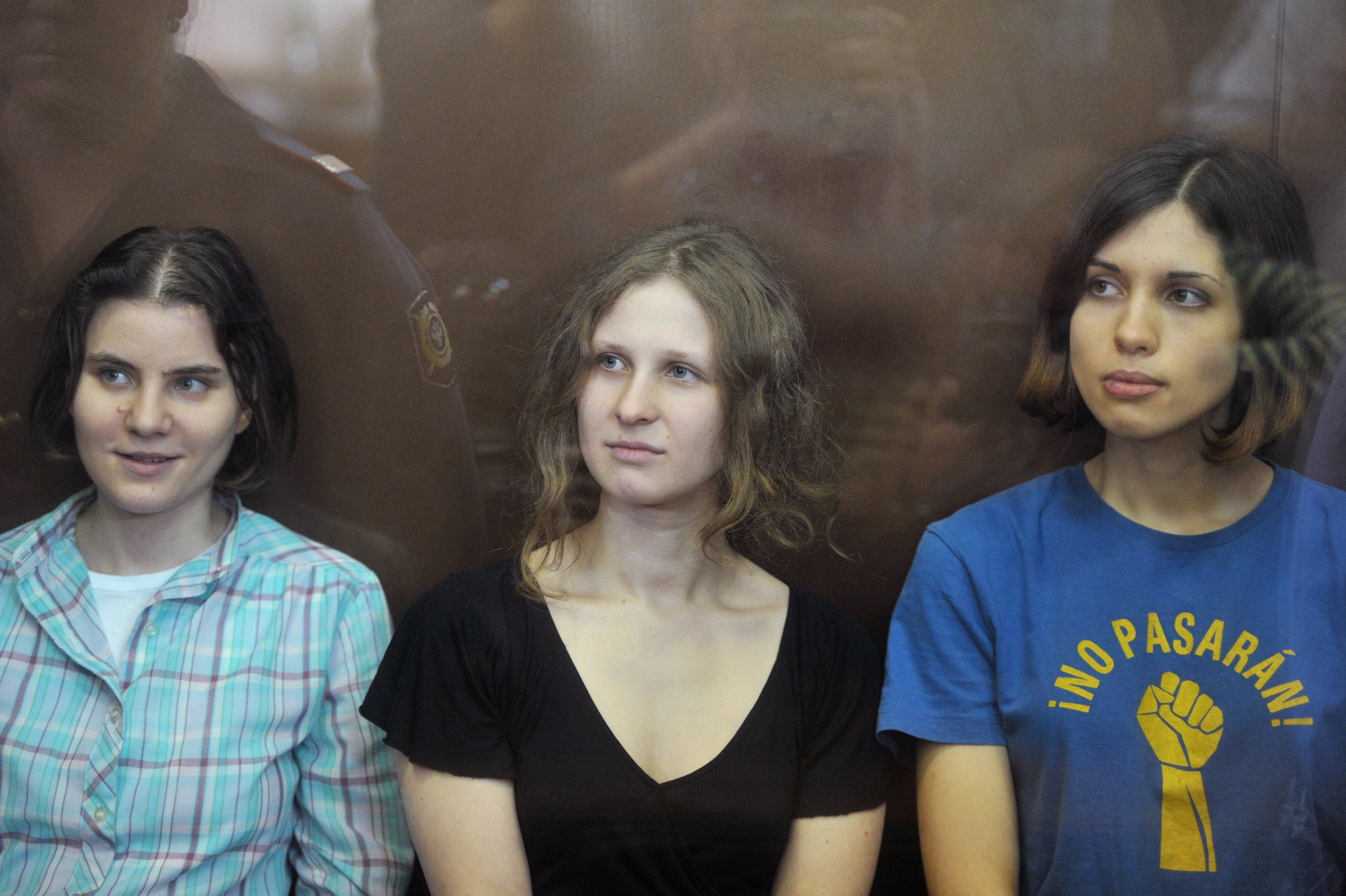MOSCOW, August 17 - RAPSI. Pussy Riot members Natalia Tolokonnikova, Maria Alyokhina, and Yekaterina Samutsevich have been convicted of hooliganism and sentenced to 2 years in prison.
Please find the detailed text broadcast of the Pussy Riot sentencing hearing here and the photos here.
On February 21, 2012 five girls wearing brightly colored masks stormed the altar of downtown Moscows Christ the Savior Cathedral to perform a protest song entitled, "Holy Sh*t." Shortly thereafter, an edited video of the performance that was uploaded to the Internet incited a major public outcry.
Audiences worldwide have zeroed in on the Punk Rock collective members’ highly controversial arrest and detention. The controversy surrounding the Pussy Riot trial centers on the competing interests of free speech and religious sanctity.
On the one hand, Tolokonnikova, Alyokhina, and Samutsevich have consistently maintained that the Christ the Savior Cathedral performance was politically and artistically - rather than religiously - motivated. Their defense team has maintained that the incident was a legitimate, albeit shocking and controversial, exercise of free speech and free expression.
On the other hand, critics have vehemently criticized the group for what has been viewed as an obscene performance in a space that is seen as sacred to the Russian Orthodox Church. Toward this end, on April 22, 2012 the church held a nationwide prayer in “defense of the faith” in order to protect the church from attacks by “anti-Russian forces.”
Prosecutors have maintained that the Pussy Riot members "inflicted substantial damage to the sacred values of the Christian ministry…infringed upon the sacramental mystery of the Church… [and] humiliated in a blasphemous way the age-old foundations of the Russian Orthodox Church."
The trial has been heavily scrutinized by domestic and international media outlets since its start in the Khamovnichesky District Court of Moscow on Monday, July 30, 2012. The first week of trial was replete with 12-hour hearings featuring a patchwork of witness testimony ranging in subject matter from demon possession to “the gold of Judas.” The time not spent on witness testimony was generally devoted to a long-lasting verbal sparring match between defense attorney Violetta Volkova and Judge Syrova.
On the final day of proceedings, prosecutors requested three-year sentences for each of the defendants. Viewing the punk prayer as both premeditated and deeply offensive to Orthodoxy, he argued that it was necessary for the girls to spend “real time” behind bars.
Attorneys for the aggrieved parties agreed with the sentence as requested by the prosecution, but noted that one of the aggrieved parties believed that the girls should only face two years of probation, in order to allow the mothers among them to reunite with their young children as quickly as possible.
Both attorneys for the aggrieved parties focused acutely on the damage done to religious sanctity by virtue of the prayer. Attorney Larisa Pavlova viewed the girls’ fist-pumping during the performance as blatantly insulting to believers. After criticizing Tolokonnikova’s life choices and Alyokhina’s university curriculum, she appealed to the judge to issue a mandate requiring universities to take preventative measures in order to ensure against the future commission of acts of hooliganism at the hands of their pupils. Her co-counsel, Lev Lyalin, lamented the act as one of nihilism, and recommended Nietzsche as a means of better understanding the Cathedral incident.
Defense attorneys Violetta Volkova and Mark Feigin did little to hide their disgust, both with the prosecution’s request and with the trial as a whole. Volkova proclaimed her intention to appeal the conviction pending against the girls to the European Court of Human Rights, and lambasted the prosecution for failing to uphold its duty to promote justice above all else. Feigin criticized the political nature of the proceedings and the blurring line between church and state. He warned that the girls’ conviction would be Russia’s first step back into the Middle Ages.



